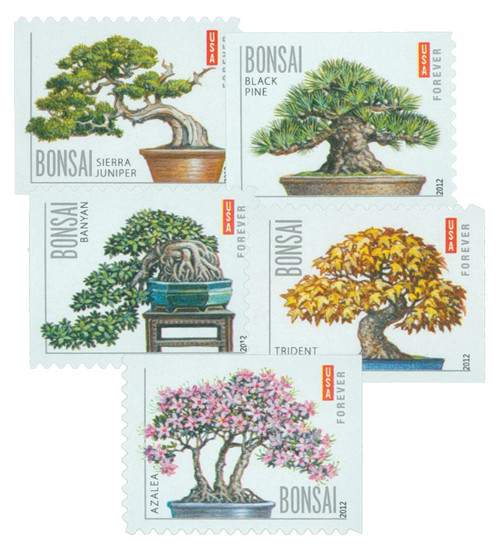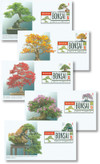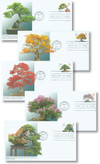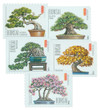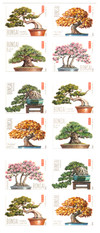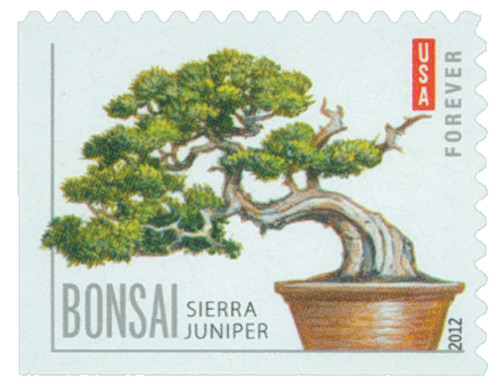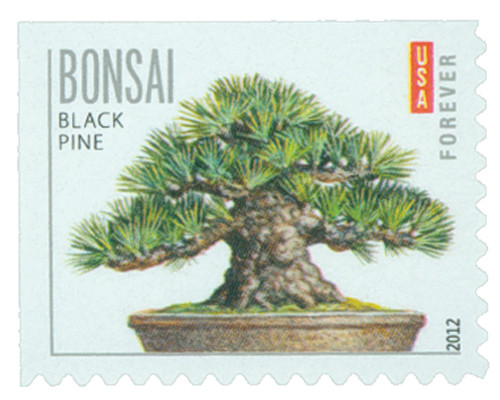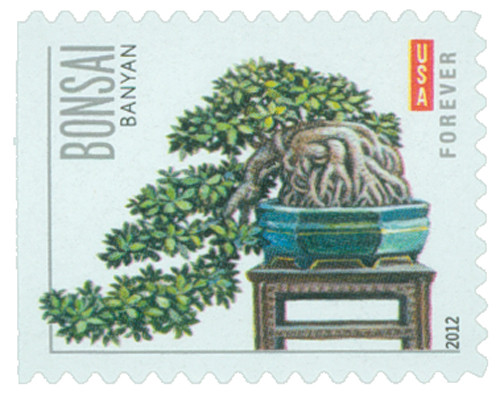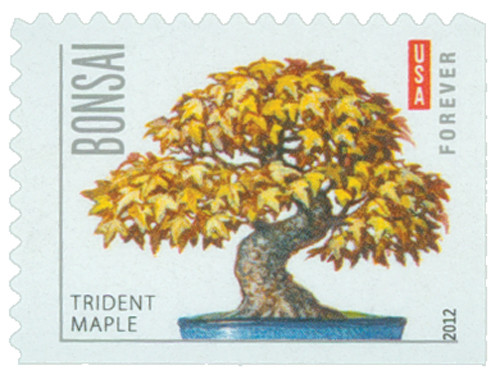
# 4618-22 - 2012 First-Class Forever Stamp - Bonsai Trees
U.S. #4618-22
2012 45¢ Bonsai Trees
Issue Date: January 23, 2012
City: Sacramento, CA
Quantity: 400,000,000
Printed By: Ashton Potter
Printing Method: Offset
Color: Multicolored
Bonsai trees reflect the traditions of Buddhism. Monks introduced the art form to Japan over a thousand years ago. Saplings taken from the wild are patiently pruned and shaped to create masterpieces of simplicity.
The most obvious characteristic in this timeless practice is its miniature size. Whether the tree is only two inches tall or over two feet tall, the mature plant resembles a full-sized tree. Careful cutting of the branches and roots keeps the tree from growing too large.
The parts of a bonsai tree must be kept in proportion. The leaves, flowers, and fruit should not overpower the trunk with their size. The container is chosen with care to complement the tree.
A properly placed bonsai is never planted in the center for spiritual and design reasons. Asymmetry is preferred in the alignment of the branches and the shape of the trunk.
When a miniature tree is mature, it should look natural, not man-made. Scars from pruning are concealed and wire used for shaping cannot damage the bark. The attention is on the art, not the artist.
Buddhism teaches its followers to accept that nothing is permanent. The art of bonsai reflects this, because it uses live trees that will not last forever. True peace is said to be found in enjoying the beauty of the moment.
U.S. #4618-22
2012 45¢ Bonsai Trees
Issue Date: January 23, 2012
City: Sacramento, CA
Quantity: 400,000,000
Printed By: Ashton Potter
Printing Method: Offset
Color: Multicolored
Bonsai trees reflect the traditions of Buddhism. Monks introduced the art form to Japan over a thousand years ago. Saplings taken from the wild are patiently pruned and shaped to create masterpieces of simplicity.
The most obvious characteristic in this timeless practice is its miniature size. Whether the tree is only two inches tall or over two feet tall, the mature plant resembles a full-sized tree. Careful cutting of the branches and roots keeps the tree from growing too large.
The parts of a bonsai tree must be kept in proportion. The leaves, flowers, and fruit should not overpower the trunk with their size. The container is chosen with care to complement the tree.
A properly placed bonsai is never planted in the center for spiritual and design reasons. Asymmetry is preferred in the alignment of the branches and the shape of the trunk.
When a miniature tree is mature, it should look natural, not man-made. Scars from pruning are concealed and wire used for shaping cannot damage the bark. The attention is on the art, not the artist.
Buddhism teaches its followers to accept that nothing is permanent. The art of bonsai reflects this, because it uses live trees that will not last forever. True peace is said to be found in enjoying the beauty of the moment.

